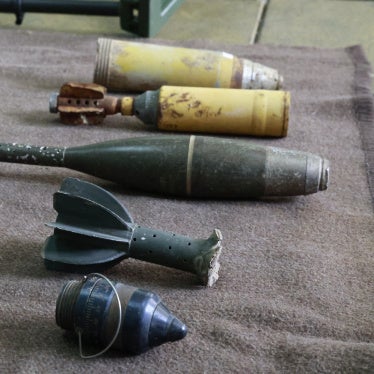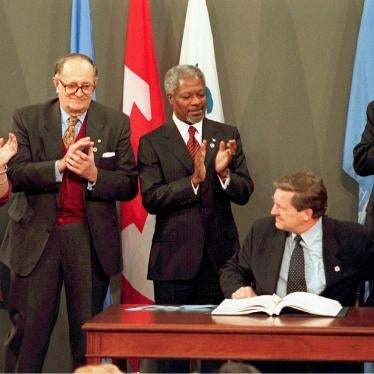Thank you chair. Transparency is key to building confidence and making needs for assistance known. States Parties are off to a strong start this year as initial reports are submitted. A 75 percent compliance rate to date is an impressive indication of the political will existing to implement the Convention. 29 States Parties have submitted initial reports. We also welcome the submission of voluntary reports by signatories Canada and DR Congo.
It is important that those State Parties that have missed their deadline - Ecuador, Fiji, Guatemala, Lesotho, FYR Macedonia, Mali, Nicaragua, Niger, Samoa, and Seychelles - submit their initial reports as soon as possible. For the other 18 States Parties with report deadlines upcoming, you are encouraged to submit initial reports as soon as possible.
We would like to make some general observations based on an analysis of the reports submitted so far.
There is a wide variation in quality among the reports. Too many states are submitting "not applicable" throughout the report and not providing definitive statements. For example, states should include a short narrative statement on Form E on conversion of production facilities, i.e., "Country X never produced cluster munitions" instead of simply putting "N/A" in the bloc. Albania and Lithuania did a particularly excellent job of doing things the right way.
Several states that stockpile cluster munitions have not filled in Form C indicating whether they intend to retain cluster munitions or submunitions, particularly Denmark and Germany who indicated that the information is to be determined. Norway did not fill in the form even though they have stated that they will not retain any. Few States Parties that indicated they will retain cluster munitions or submunitions have provided details on planned and actual uses, as required by Article 3.
Too many blank forms are being submitted, including cases where there is known or suspected contamination. Initial reports are the first opportunity for States Parties to remove any ambiguity about the status of their obligations under the Convention. There are numerous examples among the submitted reports where instead of clarifying matters, the report serves to create or increase ambiguity. For states with needs for international cooperation, presenting clear information in their Article 7 report can help communicate needs to the donor community.
There is also a tendency for donor states to combine reporting on funding provided for clearance or victim assistance related to both the CCM and the Mine Ban Treaty. While we understand that it is not always feasible to disaggregate the information, we would like to encourage states to provide as much detail as possible that can help identify when assistance is going to support CCM implementation.
Very few states are using Form J to report voluntary measures, such as actions to promote universalization, or positions on interpretative issues.
The Convention will be strengthened, mutual confidence increased, and humanitarian needs better met if States Parties ensure that Article 7 reports are submitted on time, are complete and properly filled out with sufficient detail. We therefore support the idea to develop a guidance document in order to help states provide the best possible information.








